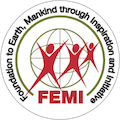Tanzania
- FT Kilimanjaro
- Taccei
FT Kilimanjaro
This project was started in 2009 by FEMI in close cooperation with TPC, a large sugar plantation/factory, in the Lower Moshi area. Since 2021, FTK has been an independent Tanzanian NGO. Despite this change, we are and will continue to be closely involved with FTK.
FTK focuses on developing villages according to an integral concept where participation and ownership of the people of the village and sustainability is paramount. To begin with, a comprehensive inventory of local problems takes place in the selected village, including through research and a Medical Camp. The wishes of the inhabitants play a decisive role. On this basis, a period of 5 years of intensive support of the residents and the selected village committee by the project organization of FTK follows. During this period an elementary school and healthcenter will be realized in each village. These will be staffed by the government. Also (drinking) water supply is realized and projects are started such as tree planting, improvement of agricultural methods, support for single mothers, etc.
After those five years, the support is phased out and the village must “stand on its own two feet”.
Six villages have now been helped in this way to shape their own development.
In addition to this village support, there are various larger-scale projects in the areas of health care, education, agriculture, infrastructure, entrepreneurship, sustainability, etc.
Taccei
TACCEI – Tanzania Conservation and Community Empowerment Initiative
TACCEI focuses on empowering marginal people/groups to create a win/win situation between communities and nature (wildlife) in Tanzania.
TACCEI’s mission: “To use innovative sustainable conservation approaches and community empowerment initiatives to create an ecosystem where both human and wildlife thrive together. TACCEI envisions being a leading model in community empowerment.
Project
“The Maasai Women Empowerment and Climate Change Adaptation Project (MWECCAP) aims to create adaptation mitigation through the elimination of gender-based violence among women and economic empowerment through climate-smart agricultural and environmental friendly income generating activities. Furthermore, the project aims to empower marginalized Maasai women politically through inclusion in decision-making bodies both in the community and local government levels.”
